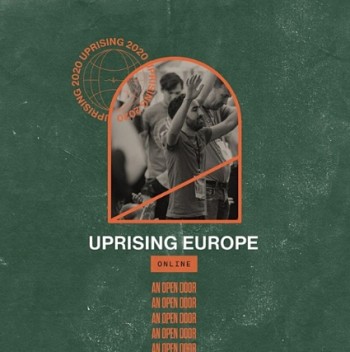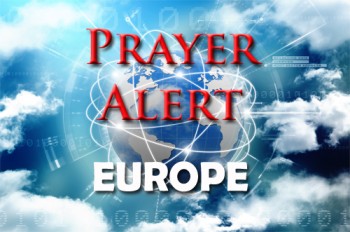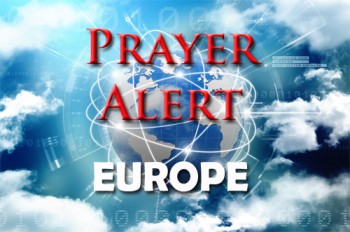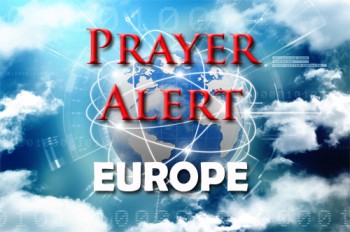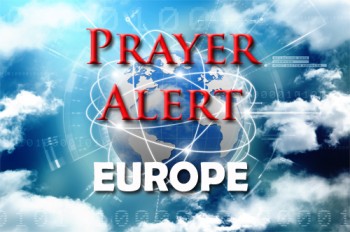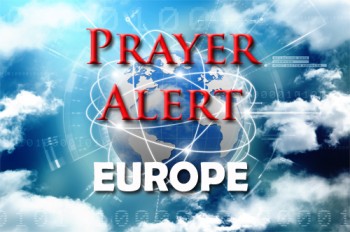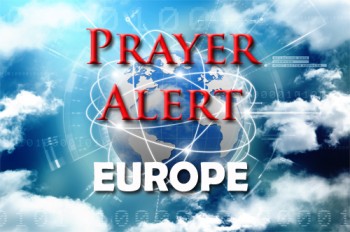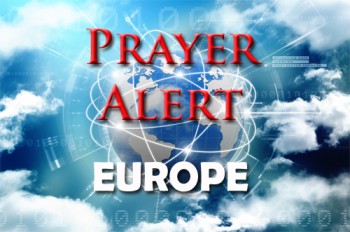Displaying items by tag: Europe
Helping Europe's poor cope with Covid
The Covid-19 pandemic will increase the number of deprived people, and make it harder for those who are already struggling. Often they cannot afford to pay rent or utility bills, keep homes warm enough, eat good quality food, run a car, own a washing machine or TV, or pay for a telephone. In 2019, 5.6% of the EU’s population - 24 million people - found themselves in this situation. The risk of increased poverty is especially high for young people, those with low levels of education, and single-parent families, especially those headed by women. The highest levels of severe deprivation in the EU last year were in Bulgaria (19.9%), Greece (15.9%) and Romania (12.6%). Portugal also has over 2 million people in poverty or social exclusion, and unemployment is set to double in 2020.
UPRising Europe ONLINE 30 June - 2 July
The United Prayer Rising Europe team are planning an inspirational and epic programme of worship, prayer and teaching across three days – 30th June and 1st and 2nd July. We believe God is going to release something special as we gather online together - in unity this summer. Prayer is key to any move of God, and we believe our prayers will shake the continent for Jesus once again.
Our vision this year is based on the theme of ‘An Open Door’. We aim to invite people across nations, generations and denominations - to open the door for a great move of God across Europe. We are expectant of tens of thousands of people being reached and taking part through the online UPRising Europe 2020 livestreams.
More info is at www.uprisingeurope.org and on social media at @uprisingeurope
Do join us!
JJ Waters - Event Director
UPRising Europe
Europe: easing restrictions
Already the media are saying that a second, more deadly, wave of coronavirus is expected to hit Europe this winter. Europe's top WHO official, Dr Hans Kluge, warns that the second spike could coincide with outbreaks of other infectious diseases. He issued a stark warning to countries beginning to ease their lockdown restrictions, saying, ‘Now is the time for preparation, not celebration’; adding as the number of cases of Covid-19 in countries such as the UK, France and Italy begin to fall, it did not mean that the pandemic was coming to an end. The epicentre of the European outbreak is now in the east, with the number of cases rising in Russia, Ukraine, Belarus and Kazakhstan.
Merkel: pandemic 'stress test' for EU
Germany's chancellor, Angela Merkel, has outlined her vision of Europe's future ahead of taking over the rotating EU presidency, saying the pandemic will be a 'stress test' for the bloc. The presidency is responsible for directing the Council's work on legislation, ensuring cohesion between member states, and supervising the continuity of the EU agenda. She welcomed the proposal for a 750-billion euro rescue fund announced by Ursula von der Leyen on 27 May, but said more still needs to be done. She has previously said that Europe is facing its biggest crisis since the EU was founded and wants the bloc to take more global responsibility in handling the fallout from the pandemic, especially as ties with the USA remain strained. The US is Europe’s most important partner, but there are currently more difficulties than Europe would like.
Poland: child sex abuse referred to Vatican
Archbishop Wojciech Polak has called on the Church hierarchy to launch proceedings following the release of a documentary telling the story of two brothers who sought to confront the priest who allegedly abused them as children. The Vatican is expected to assign an investigator to the case. The film, ‘Hide and Seek’, has been viewed over 1.9 million times on YouTube and is the second documentary on the subject by Marek and Tomasz Sekielski. Poland plans to double jail terms for paedophiles, and the Pope has made it mandatory for clergy to report abuse after victims failed to bring to account those in the Church who were responsible for covering up their abuse. A senior bishop allegedly knew about the allegations for years without taking any action.
France: medical smuggling networks
Smuggling networks have been trying to take advantage of the rush to buy medical supplies - including face masks - to tackle the coronavirus epidemic. By the end of April, French police had dismantled a number of such networks, stopped scams and attempted scams to the value of over €30 million, and seized 438,000 masks. In addition, 5.7 million masks ostensibly ordered on the internet have been the subject of a scam or attempted scam. While the crisis has shown the best of ourselves and enabled exceptional acts of solidarity, it has also been an opportunity for some to try to take advantage of the situation, to exploit fear of the disease.
Safety first
Three frontline health care workers have mysteriously fallen out of hospital windows in Russia recently, heightening public attention to the working conditions for medical staff. The incidents reflect the stress doctors are under in ill-equipped hospitals where medical workers are getting sick or dying: see Many healthcare staff are scared to complain publicly about working conditions. The UK media claimed 400,000 PPE sent from Turkey failed to meet UK safety standards, with gowns not ‘of the quality good enough for front-line staff'. As France extends emergency measures until 24 July, passengers travelling on Eurostar from the UK will have to wear a face mask or face covering, in line with guidelines from the French and Belgian governments.
Ukraine: anti-Semitism
Ukraine’s police demanded that the Jewish community of Kolommya provide them with a list of all members of their community and of Jewish students, with addresses and phone numbers. The demand was made to the head of the community, Jacob Zalichker, who said he would only comply when presented with a court-ordered warrant for the information. Joel Lion, Israel’s ambassador, brought the document to the attention of Ukraine’s president and two different ministries. He said, ‘I received phone calls from the highest officials of Ukraine strongly condemning this act of anti-Semitism. We will work together to improve education for the police about anti-Semitism’. Ukraine’s first Jewish president, Volodymyr Zelensky, was elected last year.
Re-opening Europe
Some European countries are cautiously coming out of lockdown. Italy is opening some factories and construction sites. Spain is allowing hairdressers and small businesses to reopen. Germany’s children are back at school. France is also easing lockdown. Political leaders now grapple with the economic and social shocks that lockdown has left behind, while trying to avoid large-scale second waves of infection. Italy is contending with a fresh rise in migrant arrivals from Libya, an ongoing economic crisis, and uneven support from Brussels. Spain is squabbling over spending as Catalan separatist leaders have seized on the pandemic to reignite the argument that their wealthy industrialised region would be better off independent from the devastated economy of the rest of Spain. Germany handled the coronavirus crisis better than other large European countries and favours cautious reopening, but business groups and local governments want to move faster.
EU could ban Britons
Britons may be unable to travel to some parts of Europe for their holidays once lockdown restrictions are eased, due to the government's decision to use a different contact tracing app from the one being used elsewhere. On 4 May the UK launched its app to trace coronavirus, which has been developed by NHSX, the digital arm of the NHS. They are testing the device on the Isle of Wight as they step up their preparations to ease the curfew. The NHSX smart app works on a different system from the Apple and Google one being used by many European countries, making the two systems incompatible. This leads to fears that if contact tracing becomes mandatory for international travel, UK citizens will be required to go into quarantine for fourteen days on arrival.

